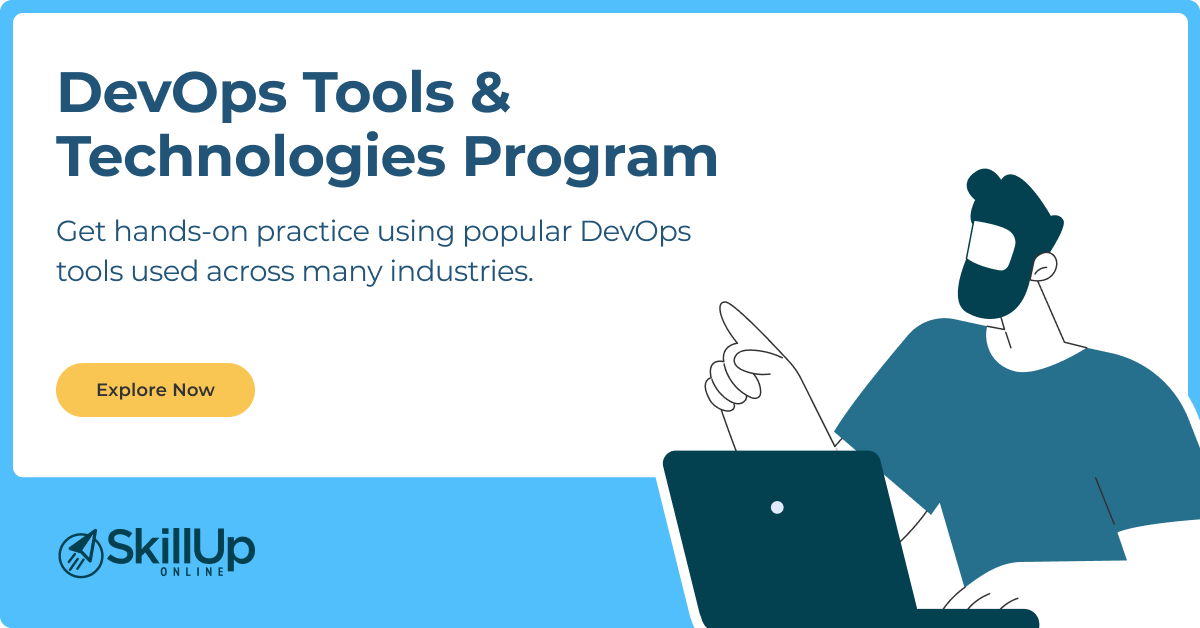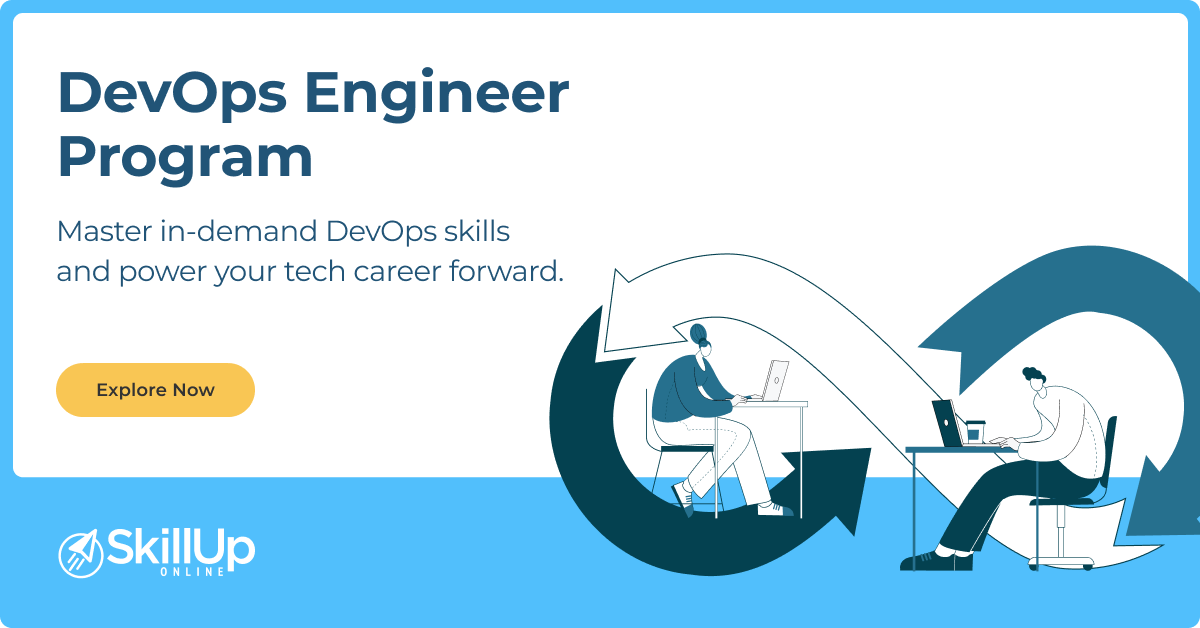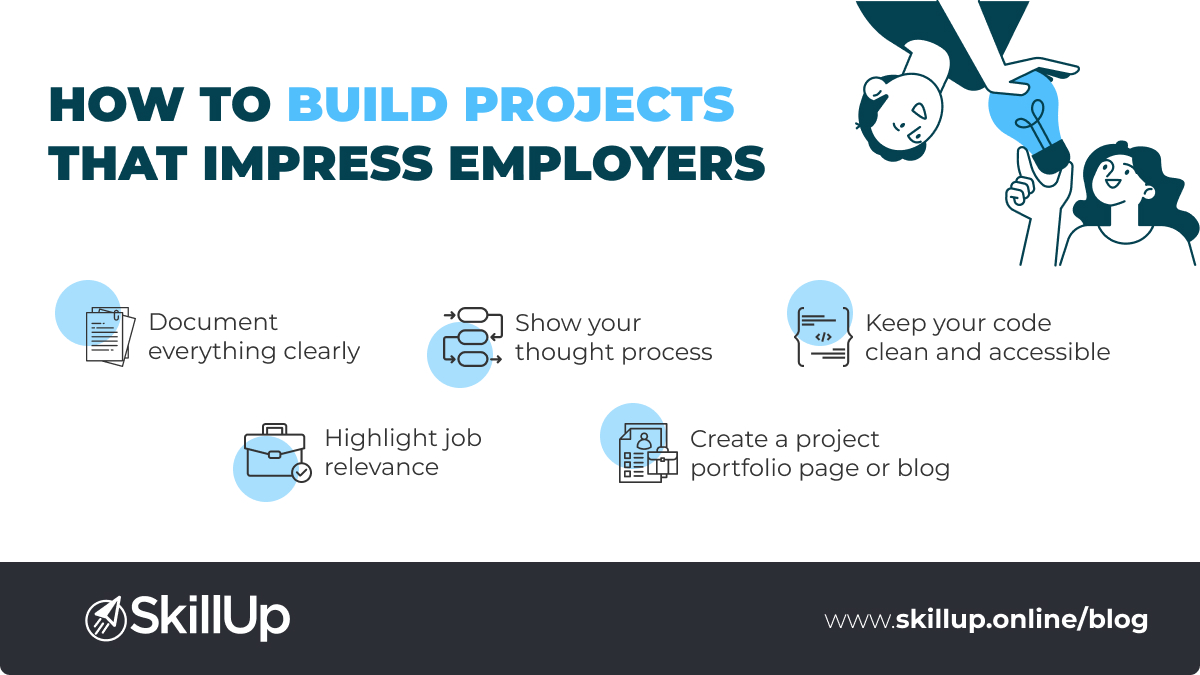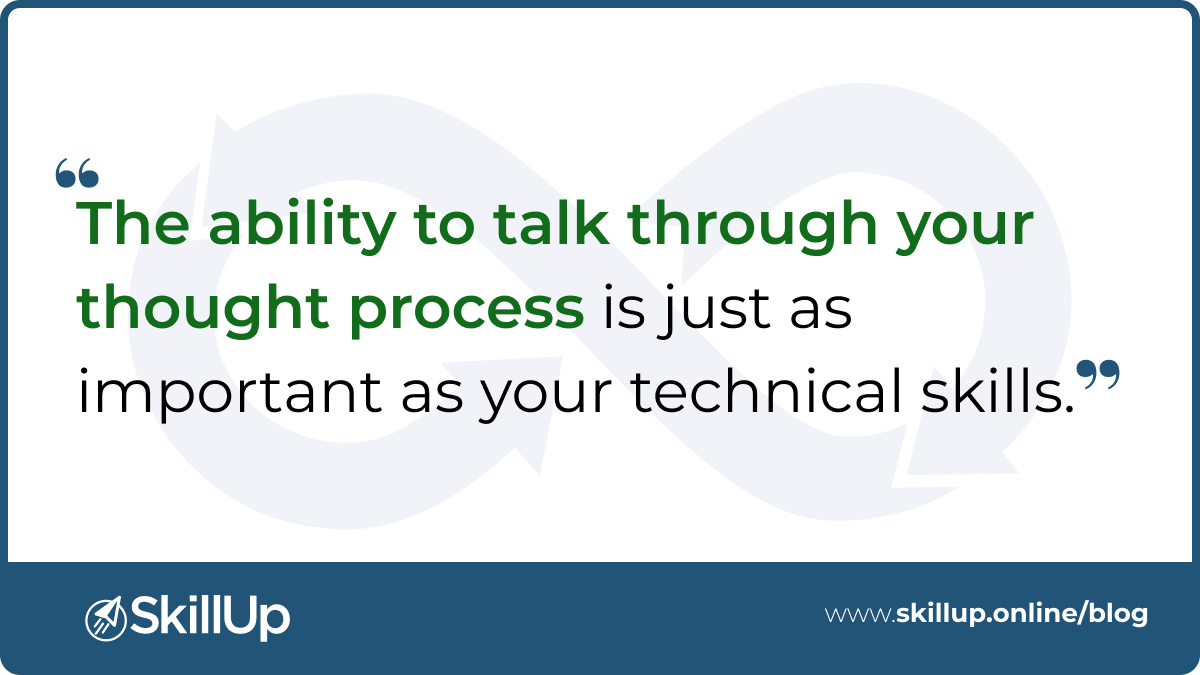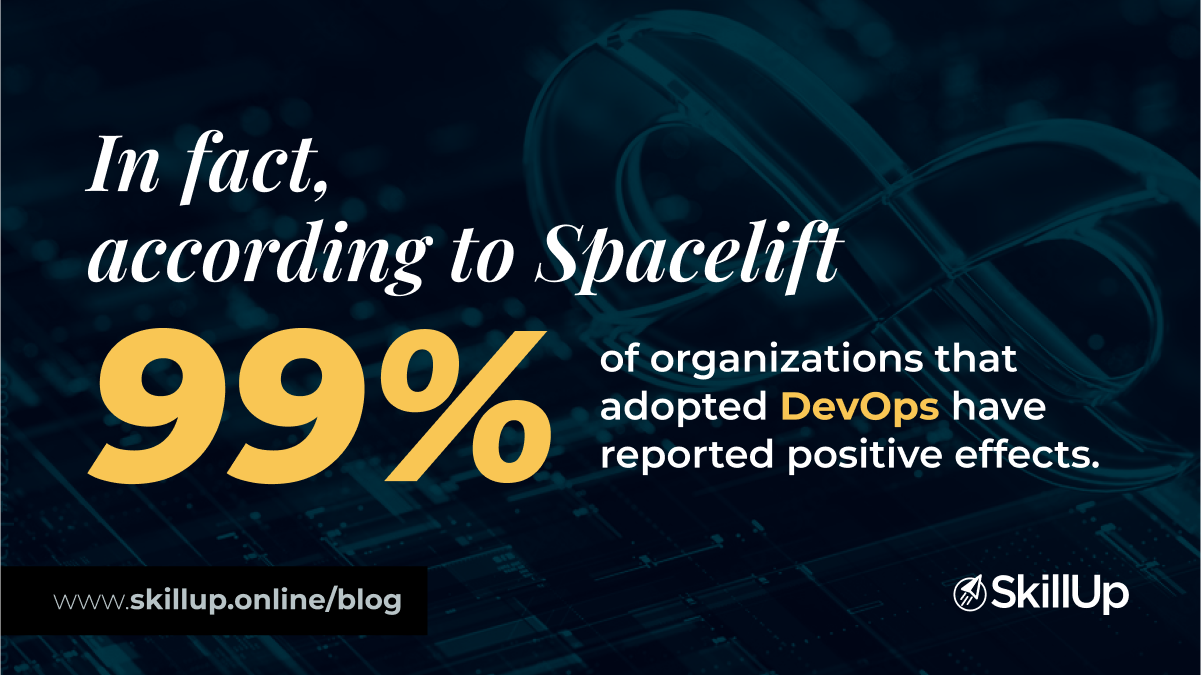In today’s ever-evolving technology landscape, the DevOps engineer role is experiencing an unprecedented surge in demand. For professionals already working as software developers, transitioning to a DevOps engineer position can be a transformative career move.
According to a report by Markets and Markets, the DevOps industry is projected to witness a staggering compound annual growth rate (CAGR) of 19.7%, with a substantial increase of US $25.5 billion expected by 2028
The great news is that as a software developer, you possess a diverse skill set that naturally aligns with the DevOps field. Your expertise in programming languages like Java, Python, and JavaScript, and your familiarity with software development methodologies and networking concepts, version control systems like Git, collaboration tools such as Jira and Trello, and cloud platforms like AWS, Azure, and Google Cloud, are invaluable assets and can be leveraged for a successful transition to being a DevOps engineer.
But how do you do that? Let’s find out!
8 Steps to Transition to the Role of DevOps Engineer
1. Nurture a Growth Mindset
As you contemplate becoming a DevOps engineer, the first step is to cultivate a growth mindset. Embrace both learning and tackling challenges, and stay open to acquiring new skills and exploring emerging trends in the DevOps domain. Here are a few great ways to achieve this:
- Subscribe to channels that publish research reports on new tech trends and read them daily. E.g., Apple News, BetaKit, The Technology Headlines, etc.
- Make a habit of reading DevOps blogs about emerging trends and technologies.
- Participate in tech seminars, events, and conferences that discuss DevOps.
- Join DevOps communities on platforms like LinkedIn, Reddit, etc., and reach out to people already working in this field.
- Look for job descriptions for DevOps engineers and see that your skills match the current requirement.
Remember, the tech world evolves rapidly, and adaptability is key to staying relevant and effective. Therefore, having the right growth mindset is an important career skill to cultivate.
2. Engage with DevOps Learning Resources and Communities
To begin your transformation to the role of DevOps engineer, a good first step is to actively seek out diverse learning resources and immerse yourself in vibrant DevOps communities. When exploring online DevOps courses, platforms like SkillUp Online, Coursera, Udemy, etc., offer a wealth of options. Ensure you opt for courses that offer industry-recognized certifications and give you hands-on practical experience through labs and capstone projects. These aspects will set you apart during job interviews and will showcase your skills in real-world scenarios.
Beyond formal courses, DevOps communities play a crucial role in your growth. Look for active groups on platforms like Reddit and LinkedIn, where you can connect with like-minded individuals and industry experts. Engaging with experienced DevOps professionals through these communities provides invaluable insights and keeps you updated with the latest industry best practices. By learning from those who have already thrived in the field, you gain essential knowledge and build meaningful connections that can propel your career forward.
3. Gain Hands-on Experience
In the realm of DevOps, the value of practical experience cannot be overstated. Though theoretical knowledge forms a strong foundation, it is the hands-on experience that truly solidifies your skills and boosts your confidence when applying them to real-world scenarios. To ensure you gain this vital practical experience, consider exploring online learning platforms that offer real-world projects as part of their curriculum. Engaging in these projects will help you apply DevOps principles and methodologies to real-world problems.
Apart from online courses, another excellent way to immerse yourself in real-world projects is through hackathons and code challenges. Participating in these events exposes you to dynamic problem-solving scenarios where you must implement DevOps principles to deliver functional and efficient solutions. The competitive and time-sensitive nature of hackathons pushes you to think on your feet and collaborate effectively, mirroring the challenges faced in the professional world.
4. Master Key DevOps Tools and Practices
To excel as a DevOps engineer, you need to focus on mastering essential tools and practices. Some essential tools and methodologies include:
- Learning CI/CD principles and automation tools for efficient software releases.
- Mastering Docker and Kubernetes for scalable application development and container orchestration.
- Adopting Infrastructure as Code (IaC) with tools like Terraform and AWS CloudFormation for agile infrastructure management.
- Utilizing configuration management tools like Puppet, Ansible, and Chef for automating software configurations and deployment.
5. Pursue DevOps Certifications for Market Readiness
Obtaining relevant DevOps certifications can significantly enhance your market readiness as a software developer aiming to become a DevOps engineer. These certifications validate your skills and demonstrate your commitment to excellence in the DevOps field. Here are some prominent DevOps certifications to consider:
- AWS Certified DevOps Engineer: Amazon Web Services (AWS) certification validates your expertise in using AWS tools and services to implement DevOps practices and automate infrastructure.
- Azure DevOps Engineer Expert: This certification assesses your ability to combine people, processes, and technologies to deliver valuable products and services using Azure DevOps. A great way to prepare for the certification exams is to complete the DevOps Engineer Program. However, if your interest lies more towards the mobile domain, you could take a DevOps for Mobile Apps course instead.
- Google Cloud DevOps Engineer: This certification focuses on testing, deploying, and maintaining applications on the Google Cloud Platform (GCP) using DevOps principles.
- Kubernetes Administrator: Certification in Kubernetes will help you build your skills in designing, deploying, and maintaining Kubernetes clusters for container orchestration.
- Docker Certification: Certification in Docker helps you learn how to work with Docker containers and Docker Compose.
- DevOps Monitoring: Although these are not strictly DevOps-related certifications, Prometheus, Grafana, and Tableau are essential tools for DevOps monitoring, and learning how to use them is extremely useful.
6. Showcase Your DevOps Skills & Certifications on Your Resume
As you gain proficiency in various DevOps tools and practices, it is crucial to reflect these new skills on your resume. This includes highlighting any relevant certifications you’ve earned and showcasing projects that demonstrate your expertise in the DevOps domain.
In addition to traditional resume updates, creating an online portfolio provides a platform to display your work, projects, and achievements visually. It allows potential employers to see your skills in action and provides a more comprehensive view of your capabilities beyond a simple resume. You could also consider creating an online portfolio on the GitHub repository to showcase your technical abilities and contributions to potential employers.
7. Prepare Confidently for DevOps Interviews
Preparation is key to acing DevOps engineer interviews. One of the aspects you need to understand before you start applying for roles is knowing what organizations are looking for in a DevOps Engineer. You can use this knowledge to articulate your experiences and projects and align them with organizational needs. Effective communication and problem-solving skills are as important as technical expertise during interviews.
8. Collaborate with DevOps Recruiters for Guidance
Collaborating with DevOps recruiters can provide valuable insights throughout the hiring process. They can help you understand what employers are looking for in a DevOps engineer and guide you in presenting yourself as the ideal candidate. DevOps recruiters are well-versed in the specific skill sets and qualities that companies seek when hiring for DevOps positions. Whether it’s expertise in a particular programming language, proficiency in cloud platforms, or experience with specific DevOps tools, recruiters can shed light on these essential requirements.
Additionally, DevOps recruiters can help you create a resume that stands out from the competition. They can offer personalized advice on how to present your experience, projects, and achievements in a compelling way. With their guidance, you can emphasize your contributions in previous roles, showcase your problem-solving abilities, and demonstrate your understanding of DevOps principles. By leveraging this type of partnership, you can increase your chances of securing your dream DevOps role and kickstart a fulfilling career in this dynamic field.
A Final Word
Becoming a DevOps engineer is an exciting and highly rewarding opportunity for software developers. It not only brings career growth but offers lucrative salary opportunities, with the average salary of a DevOps engineer in the US being $124,472 per year.
As we said at the beginning, as a software engineer, you already possess skills and knowledge that are essential for the field of DevOps. All you need to do is expand this skill set and embrace new challenges in the ever-evolving tech industry. By nurturing a growth mindset, seeking learning resources, gaining hands-on experience, updating your resume, and preparing for interviews, you can successfully transition to this role and thrive as a DevOps engineer.
If you would like to know more about how you can build the necessary skills and get started as a DevOps engineer, contact our Learner Support Team at [email protected]. They will be more than happy to guide you on the next steps you can take.
SkillUp Online

